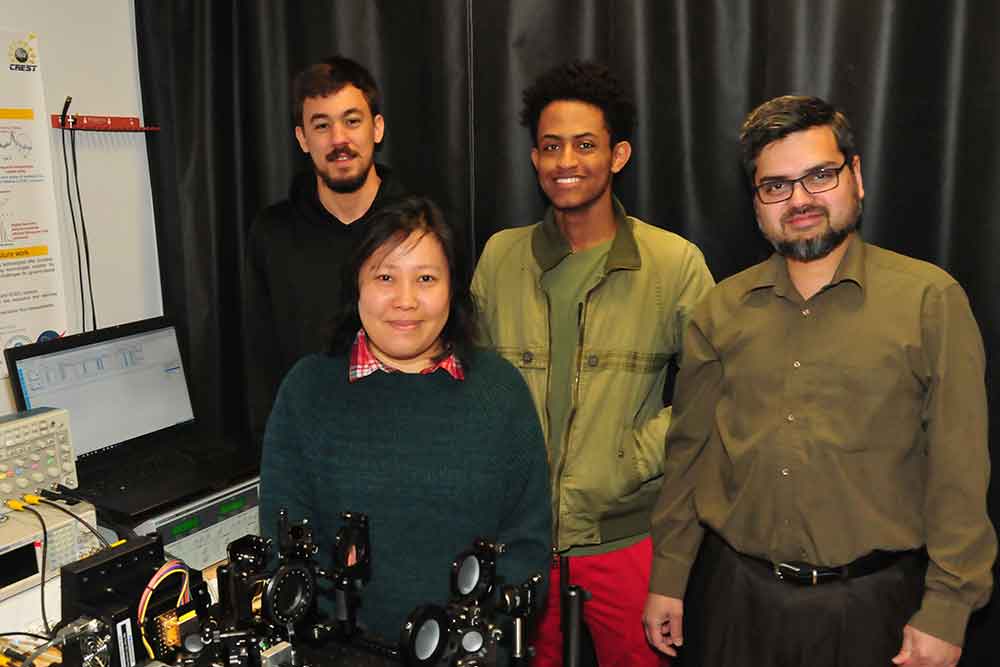
DSU Researchers Developing Chemical/Biological Warfare Sensor
While we live in a world where recently Russia unleashed nerve agents in Britain and chemical agents were used against the people of Syria, researchers at Delaware State University have been enlisted by the U.S. Department of Defense (DoD) to develop a novel laser system to detect such weapons of war.
Dr. Mohammad Khan, associate professor of physics and engineering, was recently awarded a one-year, $102,000 research grant to develop a high-resolution ultrasensitive laser-based system that can sense chemical, organic and biological warfare agents. The system will be installed in a drone helicopter and flown within the detection range of such hazardous agents.
The research grant comes from the Hybrid Complex Warfare Division of the DoD’s Office of Naval Research.
According to Dr. Khan, the principal investigator of the grant, the sensor will be able in real time to detect agents such as Sarin (the nerve agent reportedly used in the British incident), Samon, volatile organic compounds, as well as dangerous hydrocarbons such as benzene, toluene and xylene.
“The instrument will play an important role for large-scale sensor network applications in several initiatives by the Office of Naval Research relating to chemical sensing and force protection,” Dr. Khan said. “Those areas will be integrated with environmental and life sciences to better understand modern day threats.”
He added that while the project further expands DSU’s research portfolio and provides its science students with hands-on research opportunities, it also expands their knowledge of national security issues, internal and external threats, as well as of the technologies required for contemporary battlefield condition.
“As our military and combat operations become more “lean” and automated, this project will train and prepare students to be ready for challenges and adopt to cutting-edge technologies required for the next-generation workforce in the United States,” Dr. Khan said.
Students who are taking part in the research project include two undergraduates: Caio Azevedo, a junior from Brazil, and Luil Menberu, a sophomore from Ethiopia. They are joined by May Hlaing, a doctoral student in optics from Myanmar (formerly Burma).

